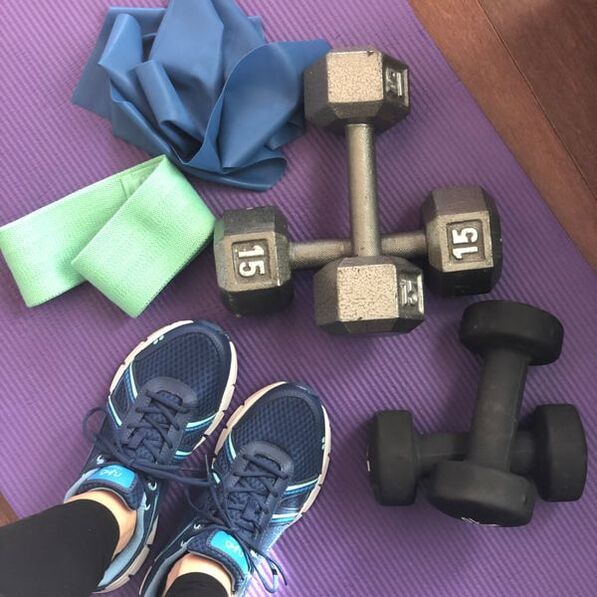|
I haven’t written anything on the blog in a while so I went back to review previous topics and works-in-progress. I discovered that I never completed the follow-up on hysterectomy recovery and the results of getting back into my fitness routine after surgery. If you need a refresher on what lead up to this, read this and this. And here where I talked about plans for recovery but didn't completely follow my own advice. Let's go all the way back to 2020. Yes, the year that lives on in infamy. On January 30th, I was given the "green light" to resume normal activities after a hysterectomy on November 26, 2019. Recovery had been more challenging than I expected; I was SO ready to get back to teaching classes, lifting weights, and doing all the things I had been restricted from doing (well, except vacuuming). I had goals in 2020 for my business and my fitness and I was ready to get to work! Of course, surprises lay ahead…and none of them were good.
0 Comments
It happens. Health stuff. Family stuff. Work stuff. Life stuff. Most of us will face changes or difficulties at some point resulting in consistent exercise falling down or completely off the priority list. For some, it’s forced rest due to surgery, injury, or a medical condition. For others, it’s a matter of planning or mindset due to changes in life circumstances. Whatever the reason, if you’ve found yourself without fitness on your priority list for months or years, this post is for you.
The doctor said, “You have healed well and you’re free to do what you want.“
It’s been over nine weeks since surgery. I've had very little physical activity during those weeks, not even walking, because I was instructed to restrict even that. The challenge now is building slowly while challenging my body appropriately. Prior to surgery I was teaching up to seven Jazzercise classes per week and a lot of that was cardio. I was lifting moderately heavy weights. I've lost cardiovascular endurance and strength. Cardiovascular conditioning declines more quickly than muscular conditioning but both areas will require a re-building phase. No matter what fitness levels were prior to surgery, we all share several important considerations as we start to exercise post-hysterectomy. The expectations don’t always match reality. The typical timeline given after a minimally invasive hysterectomy is to return to a sedentary job at around 4 weeks and resume normal activities/return to non-sedentary job at 6 to 8 weeks. It’s natural to assume that healing is complete at the six to eight-week mark and that life will resume as before surgery. However, six (or eight) isn’t a magic number. It’s simply the amount of time that it takes for the incisions to be mostly healed. Tissues are still healing for months afterwards and they are not as strong and resilient as they once were. Any complications during early recovery can also prolong healing.
This timeframe after surgery can be nearly as challenging as early recovery. Some women take on normal life activities at this point without ill effects while others cannot. It is difficult if you fall into the latter category. Then, once restrictions are lifted, suddenly, you are bearing the weight of partner and family expectations, work obligations and the pressure to “get back to normal”. How do you navigate these expectations and continue to care for your still-healing body? |
Archives
June 2023
Categories
All
|




 RSS Feed
RSS Feed